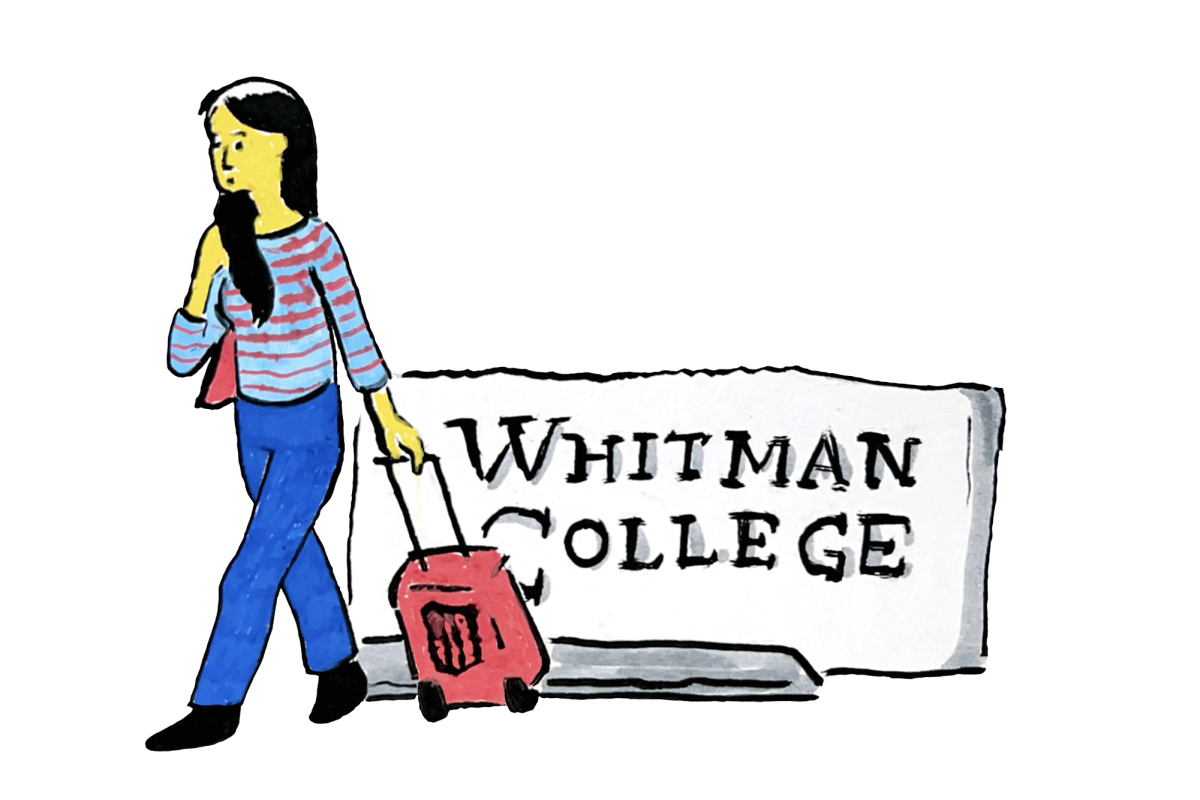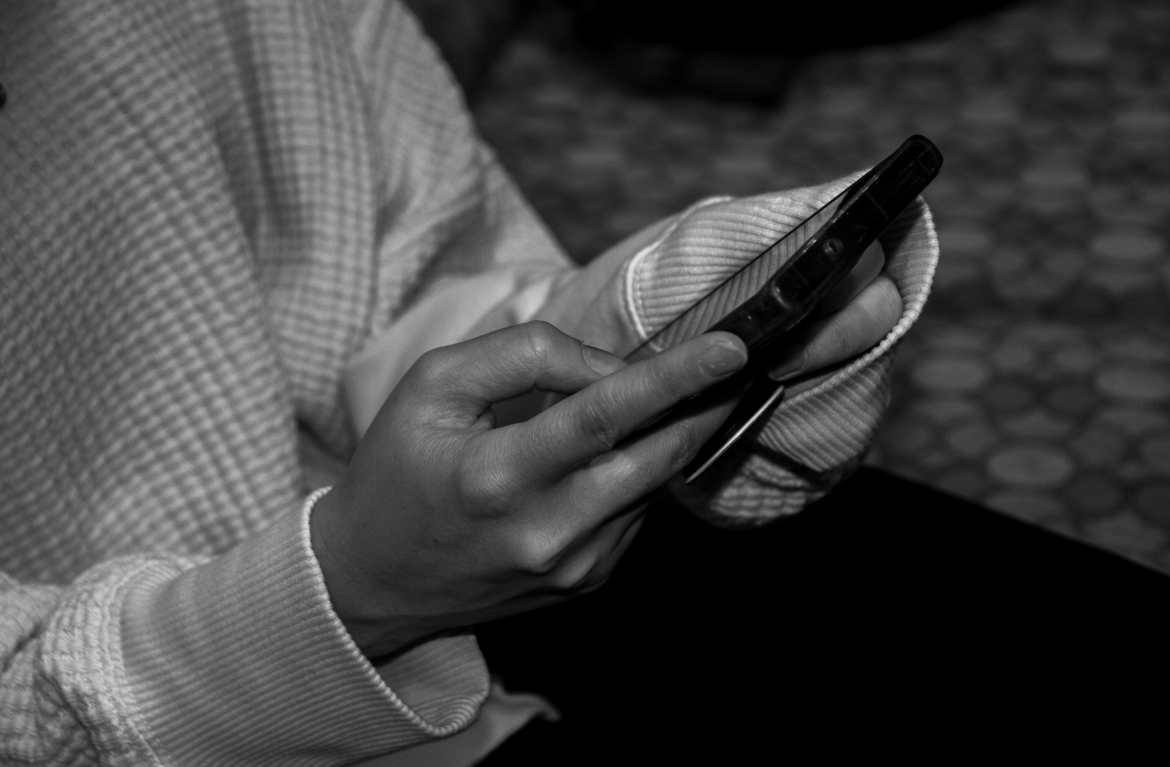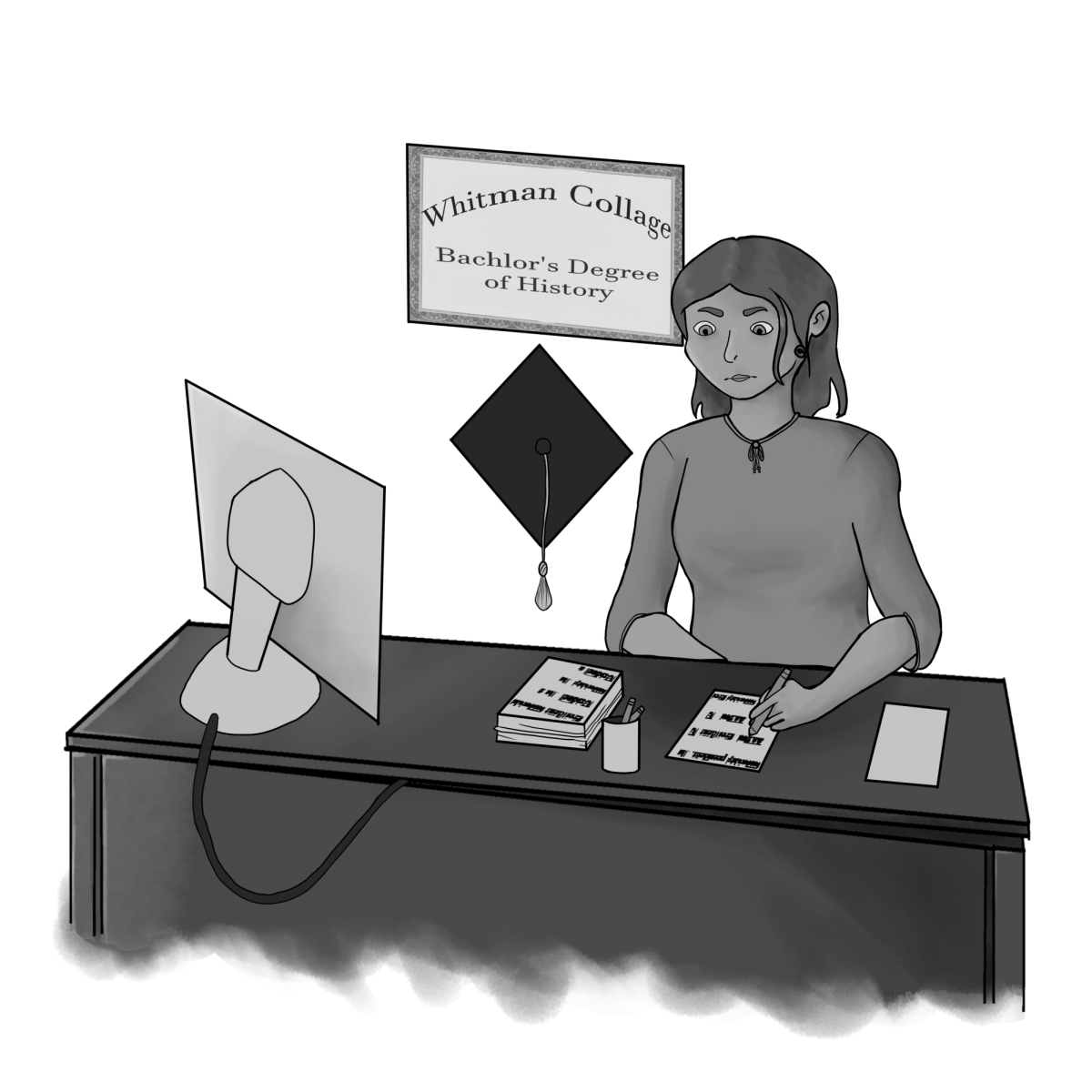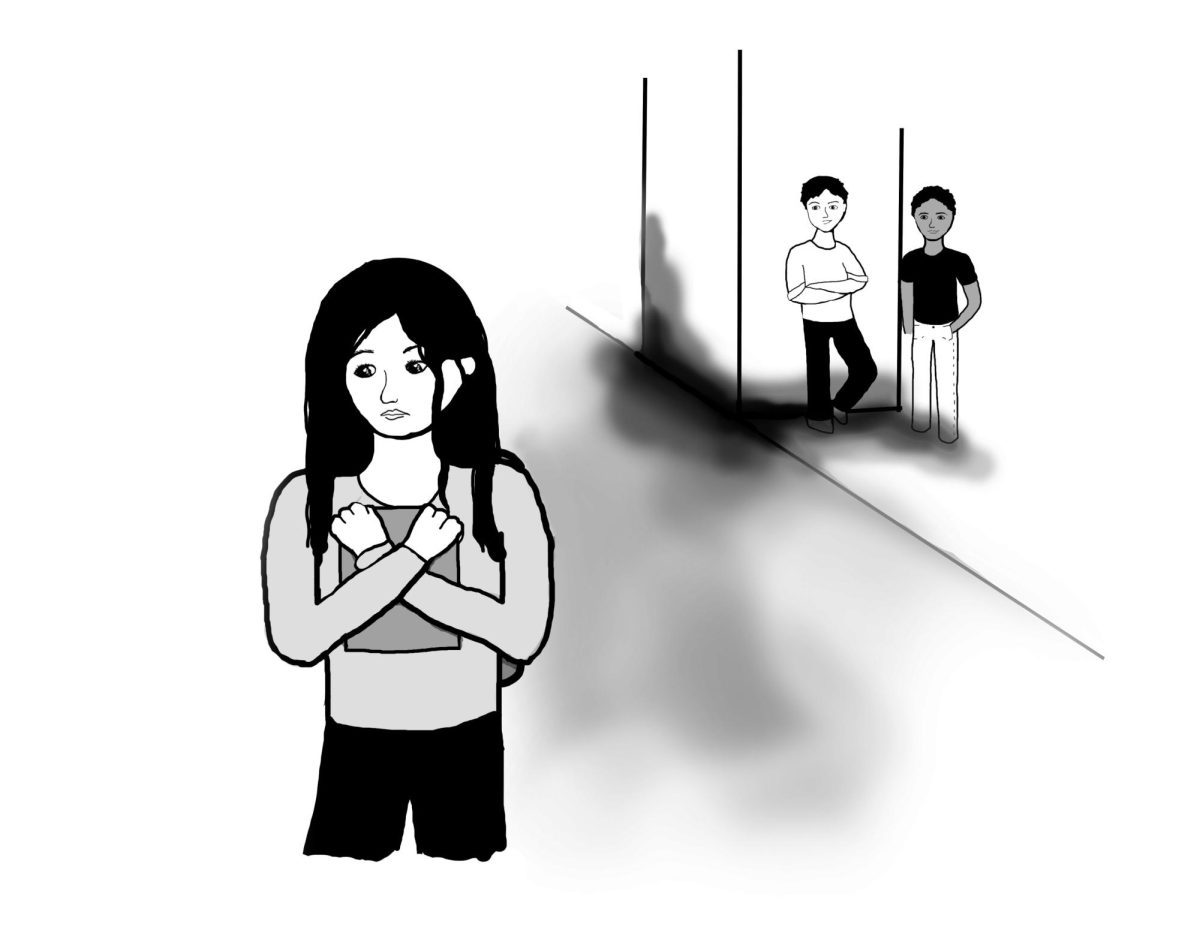Twenty-one years before Whitman’s first diversity symposium, the campus was embroiled in controversy over college investments in companies serving apartheid-era South Africa. To protest the spending, students constructed a shanty town in front of Memorial Building to demonstrate the poor living conditions of black South Africans.
In addition to creating a makeshift slum, Whitman Students for Social Change planned theatre performances, campus discussions and a candlelight vigil to raise awareness of the issue. Ann Pelo, a representative of the group, resigned a month prior from a special investment advisory committee set up by the college in response to student outcry. She told the Walla Walla Union-Bulletin in March of 1986 that the shanty town symbolized how Whitman’s spending was antithetical to human rights.
“The shanty town is an expressive statement of condemnation of apartheid voiced through solidarity with the South African blacks,” Pelo said.
Blacks living in racially segregated South Africa were not eligible to vote, and the government restricted their mobility. This system of apartheid lasted from 1948-1994.
At that time, Whitman owned stock in more than a dozen companies conducting business in South Africa, including IBM and Coca-Cola. These investments generated about $375,000 in revenue each year, and were worth a total of about ten million dollars.
While the debate reached a tipping point during the week leading up to a Friday Board of Trustees meeting to address concerns, critics had been urging divestment for several months, and students had arranged a one-day boycott of class. College spending had become a subject of extreme contention.
“Do we need educational institutions which are fiscally sound but morally bankrupt?” wrote Jack Riehl in an inflammatory letter to the editor, in which he also identified himself as a Whitman alumnus and former member of the administration. In the letter, which was published in Februrary, Riehl also accused the Board of Trustees of having “developed an avarice and greed which is famous, but which is actually better suited to a private business than to a liberal arts education” and that “obsessed with material security, they have loudly ignored the larger questions of purpose and greater human understanding…Whitman is nowhere near the quality institution it pretends to be.”
According to then Dean of Students Russel DeRemer, students had college approval to construct their symbolic shanty town. Although the Union-Bulletin reported that around 50 students showed up to help build, enthusiasm had fizzled by the end of the week as students began leaving for Spring Break.
Despite a vote by students and faculty to remove funding, the Board of Trustees voted to retain investments, limiting only those that would directly benefit the South African government or military.
Whitman treasurer Pete Reid argued that continuing to invest was a better way to urge companies to “apply pressure where it could best be applied on the South African government to remove apartheid.”
A report adopted by the Board of Trustees further stated, “There is not evidence to indicate that divestment is an effective strategy for improving the admittedly reprehensible situation in South Africa.”








